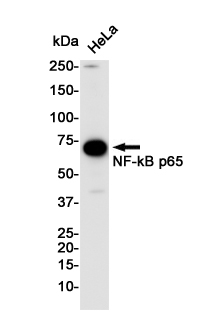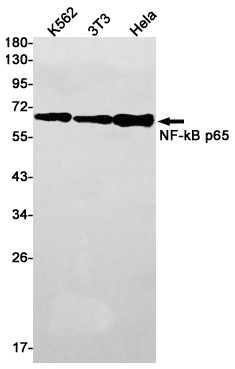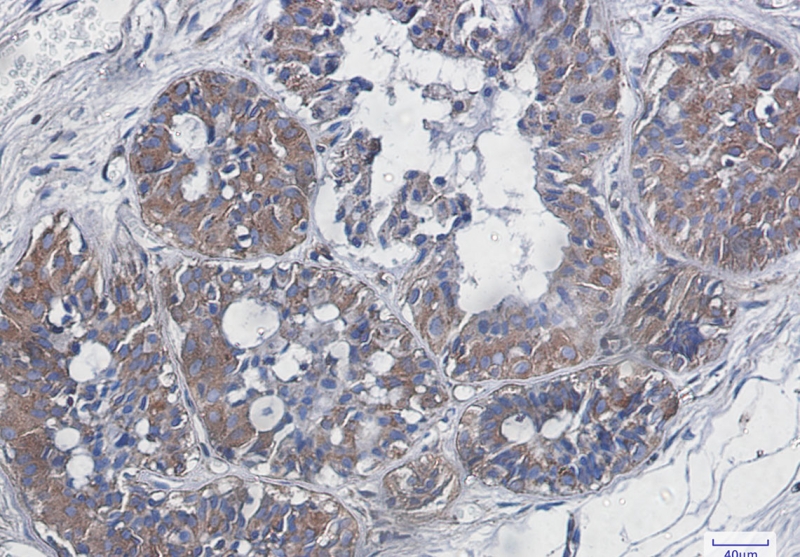


| WB | 1/500-1/1000 | Human,Mouse,Rat |
| IF | 1/20 | Human,Mouse,Rat |
| IHC | 1/50-1/100 | Human,Mouse,Rat |
| ICC | 1/50-1/200 | Human,Mouse,Rat |
| FCM | 咨询技术 | Human,Mouse,Rat |
| Elisa | 咨询技术 | Human,Mouse,Rat |
| Aliases | NFKB3; RELA; TF65; Transcription factor p65; p65; NFkB |
| Entrez GeneID | 5970 |
| WB Predicted band size | Calculated MW: 60 kDa; Observed MW: 65 kDa |
| Host/Isotype | Rabbit IgG |
| Antibody Type | Primary antibody |
| Storage | Store at 4°C short term. Aliquot and store at -20°C long term. Avoid freeze/thaw cycles. |
| Species Reactivity | Human,Mouse |
| Immunogen | A synthetic peptide of human NF-kB p65 |
| Formulation | Purified antibody in TBS with 0.05% sodium azide,0.05%BSA and 50% glycerol. |
+ +
The NF-κB p65 antibody is a crucial tool for studying the NF-κB (nuclear factor kappa-light-chain-enhancer of activated B cells) signaling pathway, which regulates diverse biological processes including inflammation, immune responses, cell survival, and proliferation. The NF-κB family consists of five subunits (p65/RelA, p50. p52. c-Rel, and RelB), with p65 (RelA) being a major transcriptionally active subunit. In unstimulated cells, p65 typically resides in the cytoplasm bound to inhibitory proteins (IκB). Upon activation by stimuli such as cytokines, pathogens, or stress, IκB is phosphorylated and degraded, allowing p65 to translocate into the nucleus and activate target genes involved in immune regulation, apoptosis, and oncogenesis.
Antibodies targeting p65 are widely used to detect its expression, localization, and activation status in experimental models. Common applications include Western blotting, immunofluorescence, immunohistochemistry (IHC), chromatin immunoprecipitation (ChIP), and flow cytometry. These antibodies help researchers investigate NF-κB's role in diseases like cancer, autoimmune disorders, and chronic inflammation. Specific p65 antibodies may distinguish between total p65. phosphorylated forms (e.g., at Ser536. a marker of activation), or cleaved fragments. Monoclonal antibodies (e.g., clone D14E12) offer high specificity, while polyclonal antibodies may detect broader epitopes. Validation across species (human, mouse, rat) and sample types (tissues, cell lines) is essential for reliability. Proper controls, such as knockout cells or siRNA-treated samples, are recommended to confirm antibody specificity. Commercial p65 antibodies often cite applications in studying drug responses, pathogen interactions, and therapeutic targeting of NF-κB pathways.
×